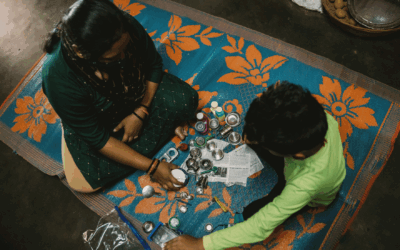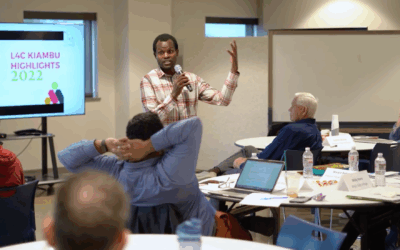In this reflection, members of The Himalayan Innovative Society (THIS) share their collaborative efforts with local officials and community leaders to adapt existing tools and practices to the Nepali context on their journey towards community-based foster care as part of the partnership between the Martin James Foundation, Forget Me Not, Hope and Homes for Children, and THIS.
Our continuous commitment to raising awareness within communities and creating an environment where children can flourish within their own families has led us to actively search for foster carers. Our teams venture into communities, seeking families with generous and compassionate hearts, willing to provide a loving home for children and ensure their safe growth within their communities.
Building Trust and Collaboration with Local Officials
Two municipalities in the Chitwan District, Madi Municipality and Ichchhakamana Rural Municipality, have taken the lead in piloting formal foster care in Nepal. Chitwan, a popular tourist destination and a district with orphanages and institutions accommodating children from remote and rural areas, is six hours bus ride from Kathmandu, the capital city of Nepal.
Since 2021, we are engaged with government representatives from both municipalities in dialogues to clarify the concept of foster care and its provision in the Act Relating to Children 2018 as one of the forms of alternative care as a solution for children over institutional care. Initially, government officials expressed concerns about community vulnerability. However, through our team’s dedication, continued follow-up meetings, talking, lobbying, workshops, training and most importantly the need in the community to build a strong gatekeeping mechanism, an agreement was reached to pilot the foster care program in these two municipalities.
In January 2023, Ichhakamana Rural Municipality and Madi Municipality developed a separate Social Development Department and officially deployed Child Welfare Officers as envisioned by the Act Relating to Children 2018 and its implementation Guideline. As the focal person, the Child Welfare Officers will make a detailed assessment of vulnerable children and ensure they will be kept in a suitable family and community-based care system, reducing the likelihood of them being placed in institutional care.
Furthermore, our team’s frequent follow-up and advocacy efforts have led to establishing the Child Rights Committees in both Madi Municipality and Ichchhakamana Rural Municipality in May 2023, providing a dedicated decision panel on child protection issues, led by the Child Welfare Officer, in accordance with the law. In addition, Ichchakamana Rural Municipality has selected THIS as one of the members of the committee representing civil society organizations. This made our day! This significant development ensures that both local levels have individuals specifically accountable for child protection, marking an important milestone in their commitment to safeguarding children and that they trust us in this process.
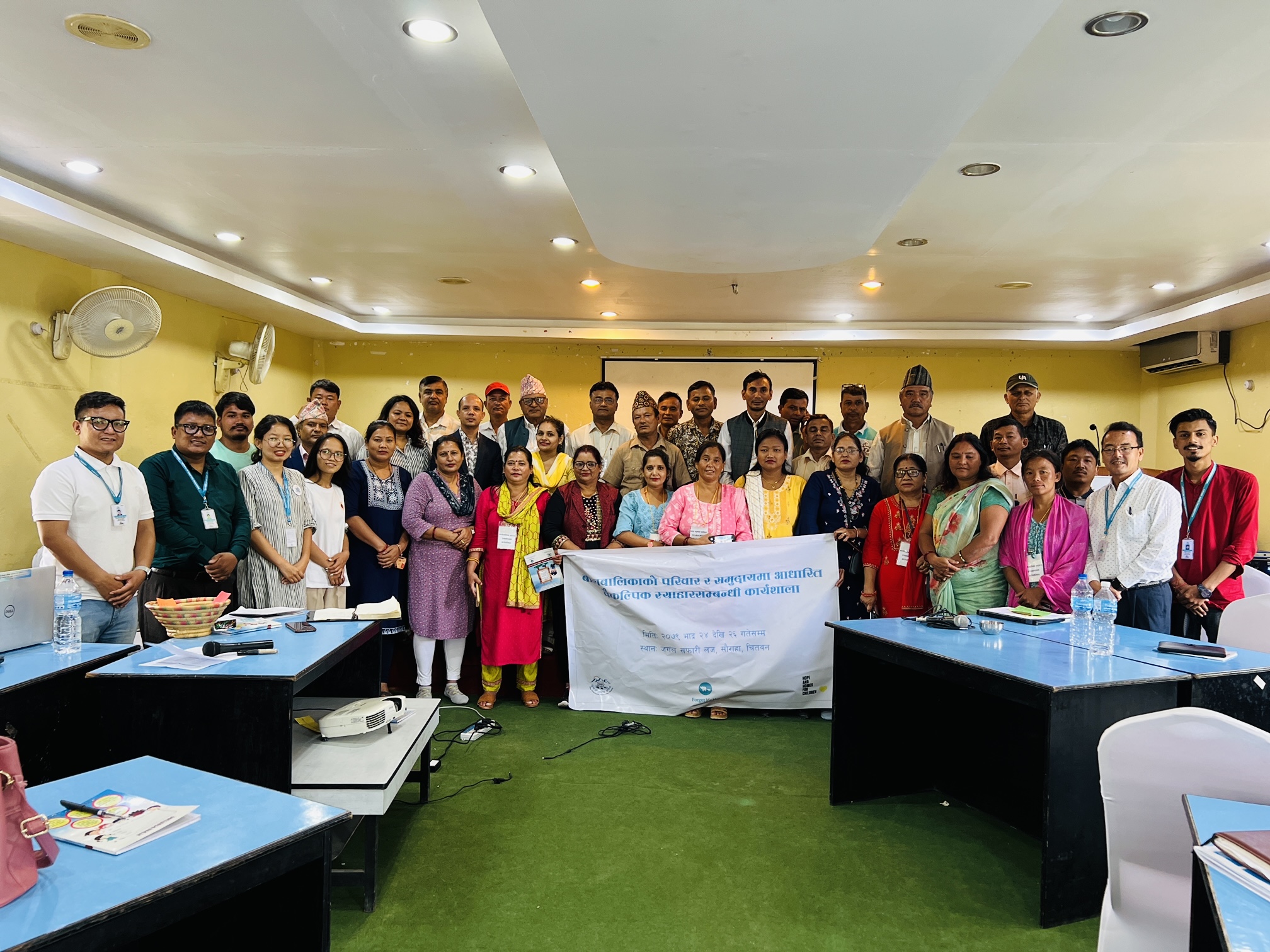
The Role of Foster Carers in Creating Child-Friendly Municipalities
As the ultimate guardians of the security and rights of citizens, teams have prioritised strong coordination and collaboration with local officials working to ensure ownership by the government so that children at risk are always their priority. Therefore, the teams visit local officials during each visit and share project progress, work plan, and obstacles faced during the project implementation. This approach has contributed significantly to building trust and garnering appreciation from local officials. We also extend support to decision-makers at the ward and municipality levels, particularly on child protection matters, while seeking assistance from influential members of the community who can effectively contribute to implementing foster care projects. These include the Chief of Tole Lane Committee, Executive Member, Pastor, Community leader and School teachers. We educate them about the country’s legal provisions on Family and Community-based Alternative Care for children and also the global movement on care reform and children’s right to alternative care.
A Child Welfare Officer of Madi Municipality shared,
“Your organisation is an expert in this issue. Whenever we face any issues in relation to children, the first person we call for input is THIS. Foster care implementation is difficult, but if we can set an example through a case in Madi Municipality, it will be a great achievement for us and our children.”
In addition to providing support, our Foster Care Team actively addresses hesitations, doubts, and questions to help local communities understand and embrace this concept. Through Foster Care, a child who requires guardianship not only gets a family, but the foster carers also receive support and respect in the community playing an essential role in giving a positive push to form child-friendly municipalities. As a community where religion is held in high regard with compassion for the greater good, our team reminds the people and communities that we do not earn piety and god’s grace only by visiting religious places but by showing and practising humanity, by giving a child, a loving and kind family, by giving a child an opportunity to grow with care and safety in their own community. There is no greater example of kindness and humanity. We have been encouraged by the community’s response. Two prospective foster carers in Madi recently shared with us the following:
“I am ready to provide guardianship to the child in my care. That child will not be treated any differently than my biological children regarding love, care and support.”
“We feel happy and satisfied to support and invest in children who are in need of a family. And we are confident that we can support our (would-be) foster child on our own, financially.”
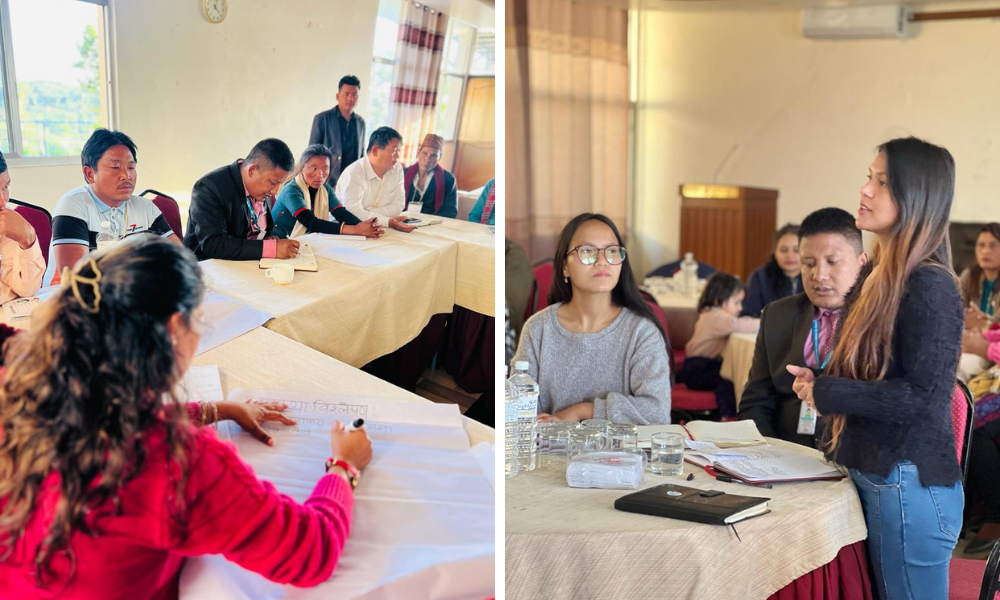
Strengthening Evidence-Based Practices
During the social mapping of potential foster carers in Ward 1 of Ichchhakamana Rural Municipality, our Foster Care Team discovered that many families had already been informally fostering children to assist them in completing their education, proving that this has been a part of our communities as a communal practice without the need of a name and not seeking any kind of recognition but practising this as an act of kindness and the need for the child. To bring a sense of ownership and extend humanity, our team has been reaching families and communities door to door, earning trust and encouraging the people to uplift a system they have been practising informally for many years. We commend their efforts in extending their hearts and homes to children beyond their own blood relations, becoming caregivers and guardians for countless children. The questions, hesitations, solutions, and stories of informal foster carers all contribute to strengthening the documentation of our evidence-based practices.
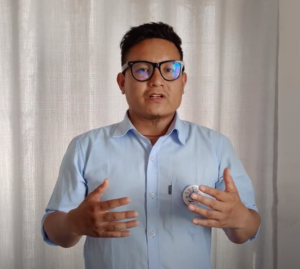
Phunjok Namgyal Lama, a Senior Reintegration Officer with THIS, shares,
“When we reached the community that had already been fostering children informally, we felt they were more clear and related to our sentiment to keep children in the family. We are hopeful of setting a formal process now with more skill, confidence and respect.”
The Martin James Foundation partners with Hope and Homes for Children (HHC), Forget Me Not (FMN), and The Himalayan Innovative Society (THIS) in a two-year initiative centred on the creation of a community-based foster care model in Nepal. This undertaking aligns with the provisions outlined in the Act Relating to Children 2018, specifically Section 49 b & c.
To learn more about this initiative, visit https://martinjames.foundation/partner-hope-and-homes-for-children/.

